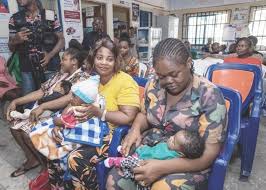Sightsavers working towards improving healthcare, reduce child mortality in Akwa Ibom

SightSavers, a Non-Governmental Organisation (NGO), has reiterated its commitment to improving healthcare and reducing child mortality in Akwa Ibom State.
The Project Coordinator, Dr Teyil Wamiyel-Mshella, made this statement on Saturday in Uyo.
The occasion was the close-out ceremony of the Safety and Anti-Microbial Resistance of Mass Administration of Azithromycin to children aged 1-11 months in Ikono Local Government Area (LGA).
Wamiyel-Mshella discussed the project’s impact and its importance in improving child health in the region.
She highlighted the NGO’s dedication through the SARMAAN Project, which focused on drug administration to reduce child mortality in Nigeria.
She said that the project, in its pilot phase, successfully treated more than 36,000 children with azithromycin in Ikono LGA, a milestone aimed at improving life expectancy.
Wamiyel-Mshella explained that the project specifically targeted children aged 1-11 months to monitor the safety and effectiveness of azithromycin in reducing antimicrobial resistance.
She lauded the project’s success, stating that azithromycin was a vital antibiotic used to treat various childhood ailments and played a key role in reducing infant and child deaths.
Wamiyel-Mshella said that the project received positive feedback in Ikono LGA, and urged the state government to expand the initiative to reduce the infant mortality rate across Akwa Ibom.
The Commissioner for Health, Dr Ekem John, commended the partnership behind the project, which included the Department of Family Health, the Federal Ministry of Health, the Gates Foundation, and SightSavers.
John emphasised that the SARMAAN Project aligned with global efforts to improve child survival in low- and middle-income countries, demonstrating the potential of bi-annual azithromycin administration in lowering early childhood mortality.
“The intervention, which is integrated with routine immunisation programmes, saw infants between 1 and 11 months receive azithromycin every six months from 2022 to 2024,” John said.
Mr Emem Uwah, speaking on behalf of the people of Ikono, expressed gratitude for the project and the dedication of officials.
He highlighted the effort to reach remote, riverine areas and lauded the improvement in child health.
Uwah also thanked the WHO, as well as the federal and state governments, for selecting Ikono LGA as the pilot location for the life-saving initiative.



